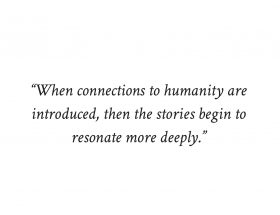Semana Santa 2018. The week of the holy, of the sacred. 18 year old me, fresh into the second semester of first year at uni. My mother, my brother. My aunt, her partner. Other families sitting at tables outside the restaurant, having normal conversations, enjoying one of the most popular Catholic traditions in Spain. It is now when my mother, quite naturally, decides to ask:
So when are you going to start having sex? You’re gonna end up getting cobwebs down there if you don’t start soon, honey.
I’ll give you a second to process that.
My mother has always been mercilessly direct when it comes to asking about my sex life– am I seeing anyone, when did I last sleep with someone, how come it was that long ago, so is that boy my boyfriend, oh isn’t my lecturer kinda hot. From the day she explained reproduction without making a single reference to bees and flowers, to the evening she talked me through why I should get on the pill if I was regularly sleeping with the same person, my mother has treated sex as a topic that can be openly discussed. No shame, no guilt, no disgust. Merely, one of the many aspects of life. Ideally, a way to have fun.
What strikes her as simple has been tormenting humanity since time immemorial.
In the Western world, sex embodies a strange combination of desire and rejection. Our understanding of emotions like lust and passion, and our collective imaginary surrounding nudity, orgasms, and the like have propped it onto a pedestal, upon which it stands as if it were nothing but a luring statue. The statue of desire, of that which is irresistible, of unparalleled fulfillment: an ode to the denial of sex’s multifaceted character. The public domain doesn’t see sex as merely a physical act: where we (as in humanity) once saw carnal sin, we now see carnal pleasure. That is, we have replaced one rigid abstract definition of the act of sex for a different rigid definition of it.
In the beginning God created the heaven and the earth… and a couple of weeks later God created a couple of individuals to make sure that they would let us know that fucking is wrong.
Judeo-Christian societies and cultures were originally built on theological texts, yes, but on theological texts which implied moral rules of conduct. On a set of guidelines for, I want to assume, the smooth functioning of society. Right and wrong. Fair and unjust. Pure and impure. Dichotomies, basically: no shades of grey (pun intended), just white and black. Unlike stealing or killing, sex presented itself as more of an untamable subject. Outside marriage (and when it involved individuals of the same gender, let’s not forget that the big monotheistic religions have never shunned from attacking homosexuality) it was impure, it was lustful. In its focus on the flesh, it denied the spiritual superiority humans’ had over the rest of God’s creations. It was sin. But it was also necessary– for reproduction. So the lord conceded his blessings for sex inside marriage. Now, intuitively, it seems that this didn’t wash away the corrupt nature of the act. It was still to be hidden behind closed doors, deemed inappropriate as a topic of conversation. In this sense, this sex inside marriage was almost framed as a necessary evil in the lord’s creation. The essentialist conceptualization of sex as generally impure prevailed. Take Virgin Mary, the mother of God. Let’s say that she did conceive the son of God with no penetration involved (let’s leave aside the fact that the Hebrew term in the original scripture, Almah, did not mean virgin, but young woman on the verge of puberty– I know this raises new concerning questions of its own but, what can I say, call Pope Francis and ask him). Did she never fuck after that? Was she a virgin her entire life? There is no mention of it in the Bible, and it would definitely explain why Jesus didn’t have any siblings, but why did she have to be a virgin? Because she had to be closer to God. The mother of God had to be pure in spirit and in the flesh. The son of God (who was God himself, the concept of the Holy Trinity could provide for an entire essay on metaphysics) had to be born to a virgin mother because sex in itself, even inside marriage, comprised sin at its core. The original sin, that of Adam and Eve: sex produced the child and sex implied the sin. Hence, baptism. Members of the Catholic clergy reflect this same train of thought: the vow of celibacy seeks to keep them closer to God. After having been purified in their childhood by having cold water sprinkled on their forehead, sin should not sneak back in. Abstinence becomes a control mechanism. (Apparently, pedophilia doesn’t impede the link to the lord, given how comfortable the Catholic Church’s hierarchy has felt with hiding it and allowing it…).
The concept of sin in the Judeo-Christian tradition was one of its core marketing tools: by putting forward a potential punishment (Hell) and a potential reward (Heaven) no real justification was necessary for the norms constructing the implicit moral code. The branding of sex as nothing but sinful stemmed from this process, and successfully reduced the act to that one attribute. The way in which this trickled down into society, all the way into laws and the general perception of fucking was obvious to the naked eye and ear. Until very recently.
In the 1960s the sexual revolution exploded and the western conceptualization of sex was flipped on its back. It was no longer sin, but freedom. Not lust, but love. Society moved from one end of the spectrum to the other: what had been sinful was now perfect. Capitalism, in its insatiable desire to profit off any change that’s there to stay, played its part: it reduced the new sex to another rigid conceptualization. The best possible version of sex (where both parties orgasm, where intercourse seems never-ending and the gleaming sweat is odorless) became something that everyone should want, that everyone should seek. What had once been synonymous to punishment replaced the original reward– from pre-fucking couples in perfume advertisements, to sexual innuendos in the marketing of ice-cream cones, sex became the implicit promise behind a significant amount of the goods we consume. By recycling and redefining the moral value (from a bad type of temptation to a good one) of the same ideas that served to present sex as sinful, the pedestal I described above was constructed. And new problems arose along with it. A further objectification of women as sexual objects, now more blatant due to the social acceptance of partial nudity and suggestive language; a culture built around the sexualized cult of the body as the ultimate synonym of a successful sex life. The new conceptualization of sex, despite the objectives of the 60s revolution, did not quite free us, but repeated the mistake of the Judeo-Christian tradition: it restricted the idea of sex to a particular set of conditions.
And thus, really talking about sex, our comfort to do so, has become even harder.
As a society, we’re confronted with a contradicting set of assumptions. On one had, the legacy of the idea of sex as impure, present in the collective imaginary and in the texts of the religions practiced by a significant proportion of the population, obvious in acts such as slut-shaming. Even our language reflects it– the term that ultimately refers to how all of us got to this existence, fuck, is a swear word, it’s exiled from what we deem to be acceptable vocabulary. While fucking embodies the act in its impure form, making love renders it pure again, links it to the higher idea of romance, away from lust, away from sin. Yet, on the other hand, we’re told that sex, just sex, is something to seek out. Something we should expect to be mind-blowing, to be passionate, somehow kinky, definitively impulsive. We’re told (especially heterosexual women) to excel at pleasing the other, but we’re never given instructions on how to do so. We are, effectively, instructed to want sex but to be ashamed of doing so, asked to perform brilliantly at it, but taught from a young age that discussing it in detail is somehow dirty.
We are incapable of talking about sex because western society hasn’t fully accepted yet what my mother sees so naturally: that sex is just an act. It is neither sin nor perfection, and promises nothing but penetration (if someone with a penis is involved) or some other form of genital stimulation. In the best of cases, yes, it’s fucking amazing. In most, it’s okay or underwhelming: everyone has either been asked or asked the other if they enjoyed that. As far as I know, it is never sin: no one has ever burst into flames while having extra-marital sex, and no one has come back from the dead to warn us. In its most basic form, sex is still a taboo.
Now, you could tell me that this isn’t exactly true. We discuss this kind of details with our friends, we talk about orgasms and one night stands, you could say, even shows like Fleabag deal with the nature of sex, in its bad and its good ways. Yet, I would argue that the truth of these statements only highlights further how complicated our relationship with sex is. Yes, we do have those conversations, but we never disclose too many details– we say it’s tmi (standing for too much information, I’m just a cool kid, mom), suggesting a subconscious understanding of sex as something to be hidden, somehow tainted. We still cringe. We still feel slightly uncomfortable, even if admitting that to ourselves opposes the modern and progressive stance we try to embody. When those conversations appear in the public social dialogue, as in the case of Fleabag (supremely genius and worth watching by the way, I love you Phoebe Waller-Bridge) the effect brings our general discomfort to the forefront: we’re so unaccustomed to an open sex conversation, yet so familiar with the specific details discussed (faking orgasms, fellow heterosexual women) that we find it funny.
Society applauds shows like Fleabag yet, it seems to me, that we’re still scared at this kind of honesty. If a school were to start teaching teenagers about ways of preventing genital discomfort after intercourse, about the importance of peeing after sex and why your pubic hair helps protect you against STIs, or about the benefits of female masturbation, a significant proportion of society would see it as inappropriate. But, why? Because it relates to sex, something that teenagers are bound to start doing anyways? Because it gives too many details? We’re back at square one: society is in love with, yet feels intimidated by, sex.
No one really seems to know why exactly. I tried looking up sex as a taboo in the St Andrews University online library, and the only interesting answer to come up was a paper about the opinion of long-distance lorry drivers in rural Tanzania on anal sex between heterosexual men (I didn’t read it– if you do, do let me know what their thoughts are). Other sites told me that sex reminded us of animal nature, which scared us and historically led to the obsessive control over it. Yet killing has never bothered humanity, despite being clearly reminiscent of the act of the hunting practices by some other animal species: far from rendering it a taboo, we’ve embraced it, proving to be better and crueller at it than any other creature. Maybe our complicated relationship with sex stems from the mechanics of it. Maybe we’ve historically constructed it as dirty because of the discomfort that comes with acknowledging that the areas that serve for waste disposal, for the stinky confirmation that we are alive, are the same, or extremely close to, the centres of pleasure and lust, to the places we touch, lick, rub. As with almost everything in life, I couldn’t find one straightforward answer.
Wherever it came from, the taboo is still there. And that’s why we have to stop judging sex. It isn’t the act that harms us: it’s our confused conceptualization of it that does. (Reminder, and I can’t believe I have to say this: sex is a consensual activity. If it doesn’t involve consent, it’s not sex, it’s rape.)
Talking about sex in an honest way, liberated from the moral charges and social expectations that we’ve layered on our conceptualization of the activity, would allow us to finally conduct healthy sexual engagements. It would free us from the pressure to be outstanding at it, helping us see it as a process through which we learn what works for us and what does for the people we sleep with. It would help us look more critically at the unrealistic beauty expectations of our time and understand that being sexual attractive does not obey having a certain type of butt or boobs, or well-shaped abs and legs. It would take the shame and the subsequent stigmatization away, making it clearer to all of us that the number of sexual partners, the gender of those sexual partners, or however it is that we enjoy fucking, don’t matter. That sex is just an act for us to fill in according to our preferences, for us to fulfill a need and connect with the physicality of our bodies. Politically, it would shine a light on the impact that Judeo-Christian perceptions of sex still have on laws regulating female bodies (take the focus of anti-abortion arguments and legislation on reproduction as the central aspect to sex) and sexual orientation. It would allow us to look more critically at our treatment of sex workers, both politically and in the media, to correct the legislative mechanisms that not only fail to offer them protection, but that continuously expose them to danger while presenting them in the collective imaginary as inherently blameworthy for their suffering. Talking about sex would open the door to multiple other conversations; it would assist the project of our collective freedom.
On the week of the holy, of the sacred in 2018, while we waited for the procession of Virgin Mary carrying her dead son in her arms, my mother’s words made me realize something: the problem has never been the act of sex. It’s been us.
Photograph by Isabella Baxter




